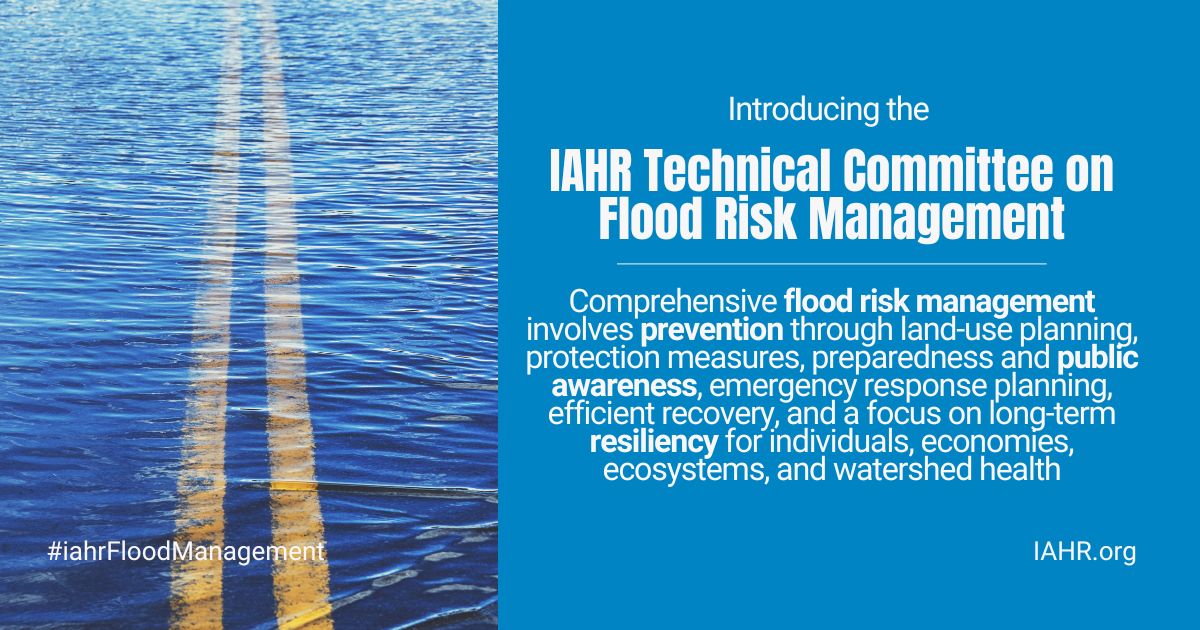Committee on Flood Risk Management
Upcoming events
2nd Flood Risk Management Webinar - Wading into Floods from Dam and Dike Failures, October 28, 2025, Online
Latest Newsletters
Newsletter 2, 2025 | Newsletter 1, 2025 | Newsletter 1, 2024 | Newsletter 1, 2023 | Newsletter 1, 2022 | Newsletter 2, 2021 | Newsletter 1, 2021 | Inauguration of the newsletter series
Initiatives
Questionnaire on the current and the future vision of Integrated Flood Risk Management
Water Monograph on Practical Flooding Risk Assesment for Development Projects
IAHR White Paper: The role of hydraulic engineering in support of flood mitigation and resilience
Data/Model Repository
Flood Damage Models (FDM): Download
Typical Flood Management Case Studies
Dam-break flows over mobile beds: experiments and benchmark tests for numerical models
Background and Scope
Flood Risk Management (FRM) is a key topic of current concern for the water community, driven primarily by transformations of rural landscapes, unsustainable urban population growth and climate change. At the same time IAHR needs to be more focused on problem–solving in practice and other Committees such as Fluvial Hydraulics and Fluid Mechanics are narrowly focused on hydraulic processes.
Following discussion within IAHR (and also with other associations such as IAHS and IWRA), the IAHR council approved at the 2015 meeting the establishment of a new Technical Committee on Floor Risk management which held a launch meeting during the 2015 IAHR World Congress in The Hague. The FRM TC will provide a platform within IAHR to promote and support FRM sessions in our key congresses, and will organise a dedicated FRM conference in Iowa in 2018; it is intended that the new Committee will also act as the main contact point to further stronger links with other associations with an interest in this domain.
Research Agenda
Prevention: preventing damage caused by floods by avoiding construction of houses and industries in present and future flood-prone areas; by adapting future developments to the risk of flooding; and by promoting appropriate land-use, agricultural and forestry practices;
Protection: taking measures, both structural and non-structural, to reduce the likelihood of floods and/or the impact of floods in a specific location;
Preparedness: informing the population about flood risks and what to do in the event of a flood;
Emergency response: developing emergency response plans in the case of a flood;
Recovery and lessons learned: returning to normal conditions as soon as possible and mitigating both the social and economic impacts on the affected population;
Resiliency: working to ensure long-term resiliency of citizens, economies, ecological systems and watershed health for future flood events.
